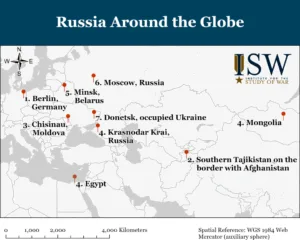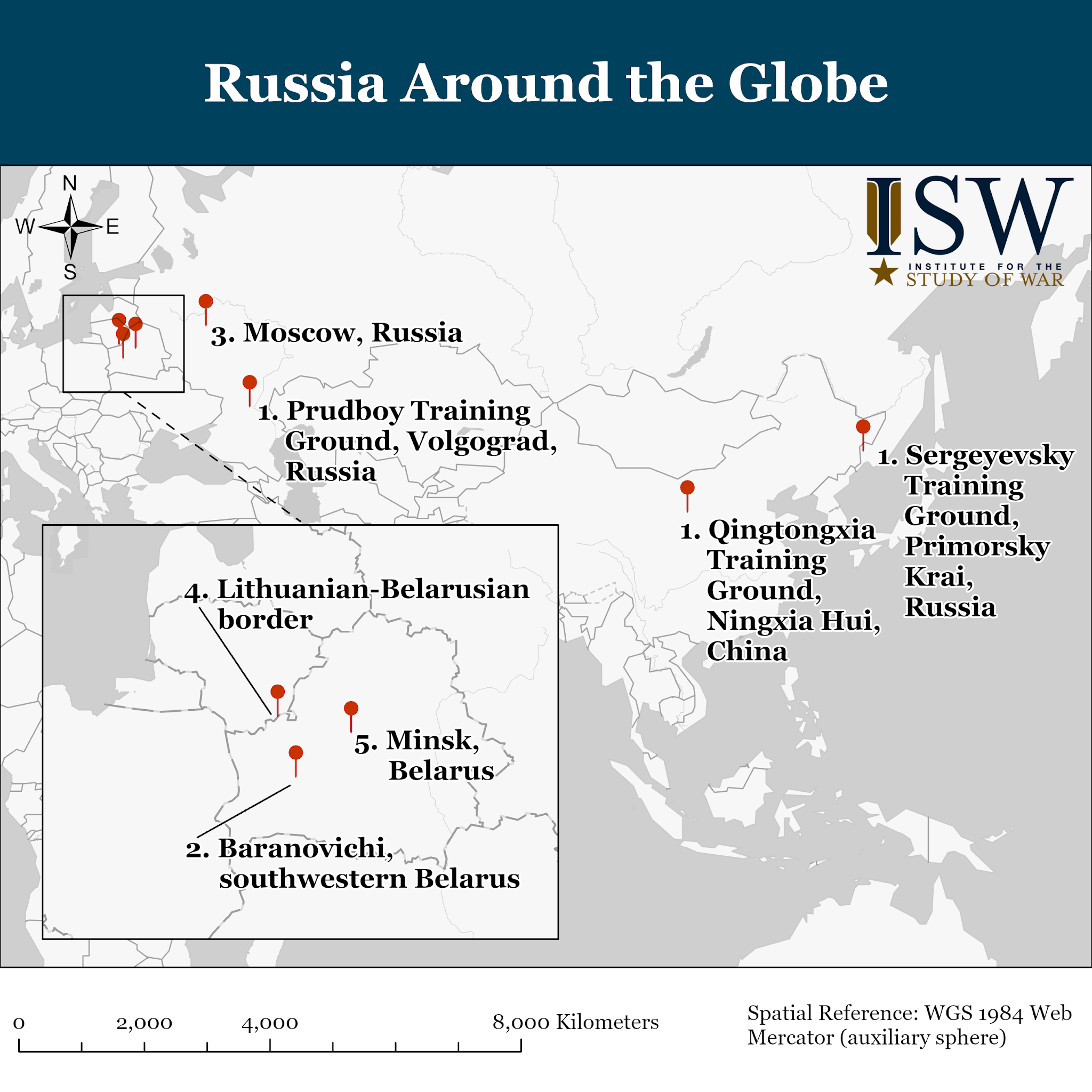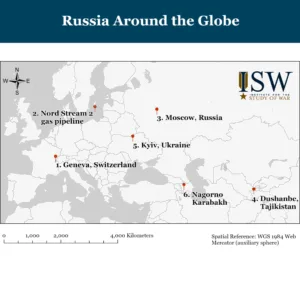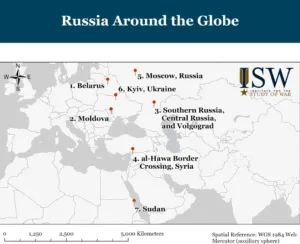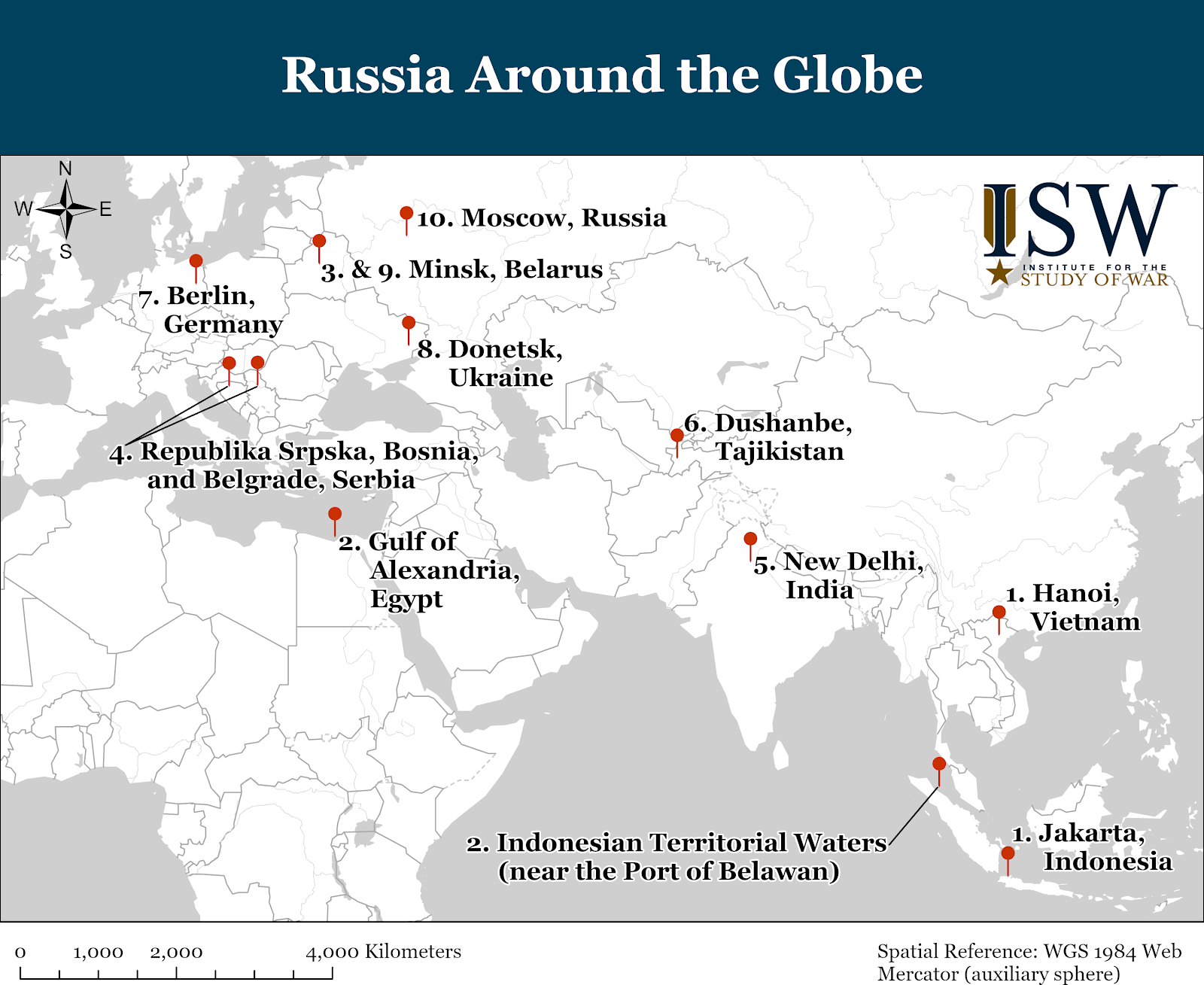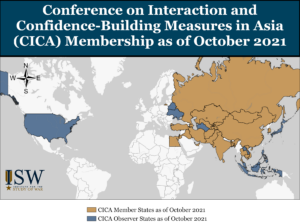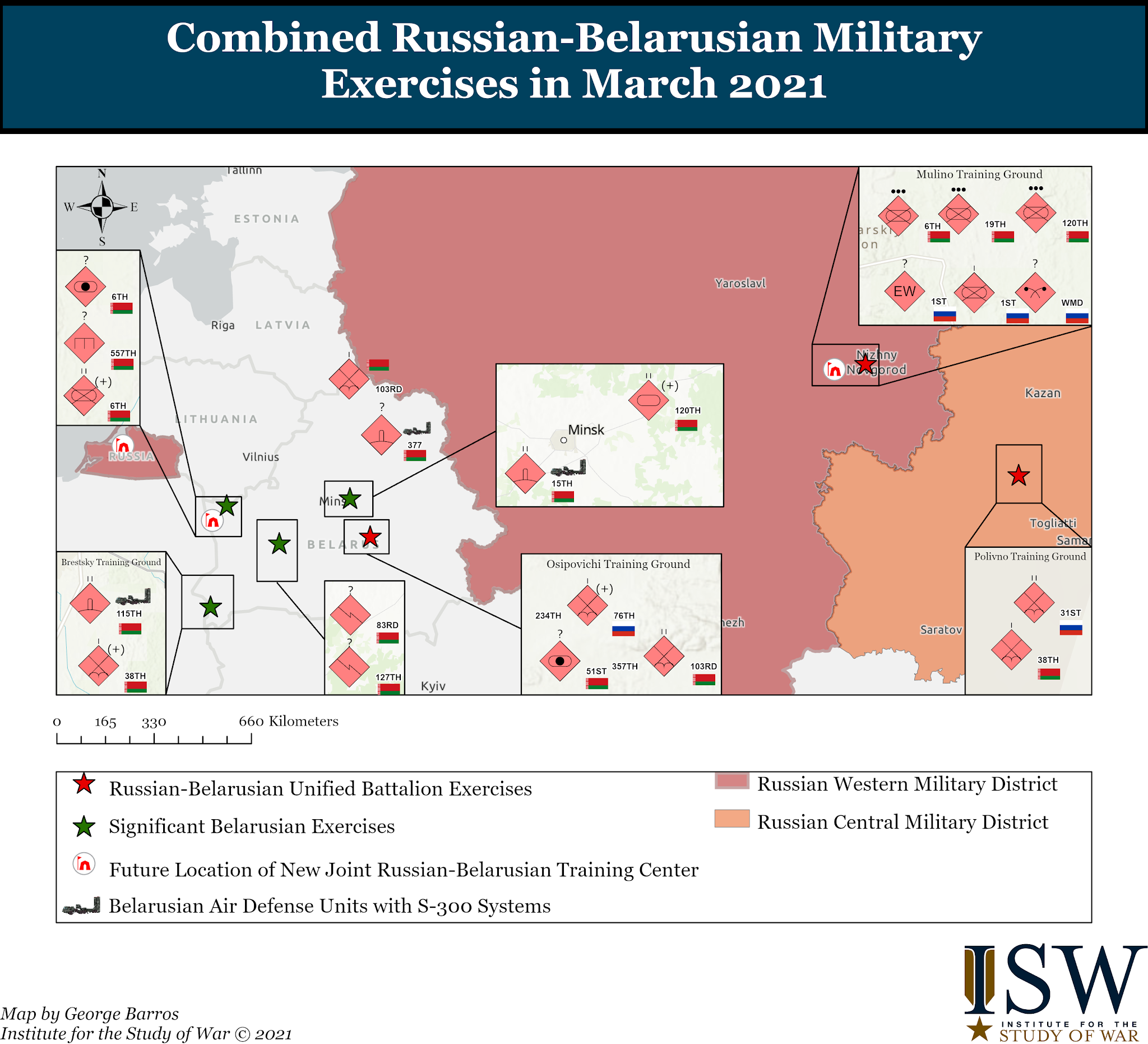Russia in Review

Russia in Review
Research
RUSSIA & UKRAINE
BELARUSKREMLINUKRAINE
Russia Around the Globe – November 30, 2021
RUSSIA & UKRAINE
BELARUSKREMLINUKRAINE
Russia Around the Globe – November 9, 2021
RUSSIA & UKRAINE
KREMLIN
Russia Around the Globe – October 19, 2021
RUSSIA & UKRAINE
UKRAINE
Russia Around the Globe – October 5, 2021
RUSSIA & UKRAINE
KREMLIN
Russia Around the Globe – September 21, 2021
RUSSIA & UKRAINE
UKRAINE
Russia Around the Globe – August 31, 2021
RUSSIA & UKRAINE
KREMLIN
Russia Around the Globe – August 17, 2021
RUSSIA & UKRAINE
KREMLIN
Russia Around the Globe – August 3, 2021
RUSSIA & UKRAINE
KREMLIN
Russia Around the Globe – July 20, 2021
RUSSIA & UKRAINE
UKRAINE
Russia Around the Globe – July 6, 2021
Update
Jan 14, 2022
RUSSIA & UKRAINE
BELARUSKREMLINUKRAINE
Russia Around the Globe – January 11, 2022
GEOSPATIAL INTELLIGENCE
UKRAINE
COA1d Ukraine Forecast Map: Odesa
GEOSPATIAL INTELLIGENCE
UKRAINE
COA1c Ukraine Forecast Map: Land Bridge to Crimea
GEOSPATIAL INTELLIGENCE
UKRAINE
COA1a Ukraine Forecast Map: Russian Deployment to Belarus
GEOSPATIAL INTELLIGENCE
AFGHANISTANUKRAINE
Russian Force Posture around Ukraine December 2021
Update
Dec 3, 2021
Update
Nov 10, 2021
Update
Oct 21, 2021
Update
Oct 7, 2021
Update
Sep 23, 2021
Update
Sep 2, 2021
Update
Aug 19, 2021
Update
Aug 5, 2021
Update
Jul 22, 2021
Update
Jul 8, 2021
Update
Apr 8, 2021
RUSSIA & UKRAINE
BELARUSKREMLINUKRAINE
Russia in Review: Russia Opens Permanent Training Center in Belarus and Sets Conditions for Permanent Military Basing
RUSSIA & UKRAINE
BELARUSKREMLINUKRAINE
Combined Russian-belarusian Military Exercises in March 2021
Update
Apr 1, 2021
RUSSIA & UKRAINE
BELARUSKREMLINORBATS AND EXERCISESUKRAINE
Russia in Review: Russian Deployments Near Ukraine Likely Intended to Pressure Zelensky, not Biden
Russia & Ukraine
BelarusKremlinUkraine
Russia Around the Globe – November 30, 2021
Russia & Ukraine
BelarusKremlinUkraine
Russia Around the Globe – November 9, 2021
Russia & Ukraine
Kremlin
Russia Around the Globe – October 19, 2021
Russia & Ukraine
Ukraine


